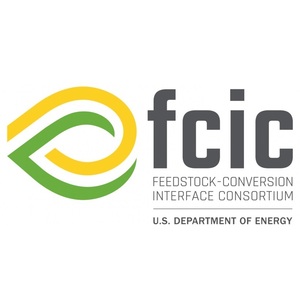DOE helps industry leverage bioenergy feedstock expertise

April 4, 2023
BY Erin Krueger
The U.S. Department of Energy’s Bioenergy Technologies Office (BETO) has launched an initiative that aims to help industry and universities leverage the Feedstock-Conversion Interface Consortium’s capabilities to help solve real-world problems that the bioenergy and bioproduct industries are facing.
BETO in March issued a Cooperative Research and Development Agreement (CRADA) call seeking proposals from interested parties. The funding opportunity will provide resources to collaborate with researchers from the BETO’s Feedstock-Conversion Interface Consortium to address the negative cost and risk impacts of feedstock and process variability across the bioenergy and bioproducts value chain. Research areas may include feedstocks supply, handing, transport, preprocessing, and initial chemical conversion.
The agency plans to select up to four projects via a competitive application process that will collectively be awarded at least $2 million. Project duration will be up to three years.
Advertisement
Advertisement
The CRADA aims to maximize the likelihood of near-term impact for industrial partners by leveraging existing capabilities within the consortium as opposed to projects that require novel model or tool development, according to the DOE. Some examples of capabilities produced through FCIC include examining the effects of feedstock storage operations; sorting incoming feedstock for quality; identifying feedstocks that may cause system upsets in real time; developing tools to predict blade wear in mills; and developing tools to predict the flow of biomass.
Eligible feedstocks for the CRADA call include lignocellulosic biomass, including ag or forest residues and dedicated energy crops; oilseed crops; municipal solid waste (MSW); organic waste, including food waste, post-anaerobic digestion sludge from municipal wastewater treatment systems, animal manure, and fats, oils and greases; and food waste that is no long suitable for human consumption and would have otherwise entered an anaerobic digester, landfill or other post-consumer disposition.
Advertisement
Advertisement
According to the DOE, eligible unit operations include any unit operations that occur after the initial collection of feedstock. Eligible conversion processes for the CRADA include both low-temperature process, such as pretreatment, enzymatic hydrolysis, microbial conversion and anaerobic digestion, and high-temperature processes, including pyrolysis, gasification and hydrothermal liquefaction. The CRADA applies to projects that aim to produce finished biofuels, bioproducts and intermediates that can be converted to finished biofuels or bioproducts through additional unit operations.
Interested parties must file a notice of intent by April 14. Full proposals are due May 5. The DOE plans to notify selected projects by June 30. Additional information is available on the DOE website.
Related Stories
The European Commission on July 18 announced its investigation into biodiesel imports from China is now complete and did not confirm the existence of fraud. The commission will take action, however, to address some systemic weaknesses it identified.
Kintetsu World Express Inc. has signed an additional agreement with Hong Kong, China-based Cathay Pacific Airways for the use of sustainable aviation fuel (SAF). The agreement expands a three-year partnership between the two companies.
On July 18, U.S. EPA announced a reduction in force (RIF) as the agency continues its comprehensive restructuring efforts. With organizational improvements, EPA is delivering $748.8 million in savings.
Broco Energy on July 17 announced a new partnership with the Massachusetts Port Authority (Massport) to deliver and transition Massport's fuel tanks to renewable diesel across its various facilities.
Shell Aviation, Accenture, and Amex GBT on July 10 announced Avelia is in the process of evolving to an industry solution with independent data hosting and a multi-supplier model helping users access the GHG benefits of SAF.
Upcoming Events










